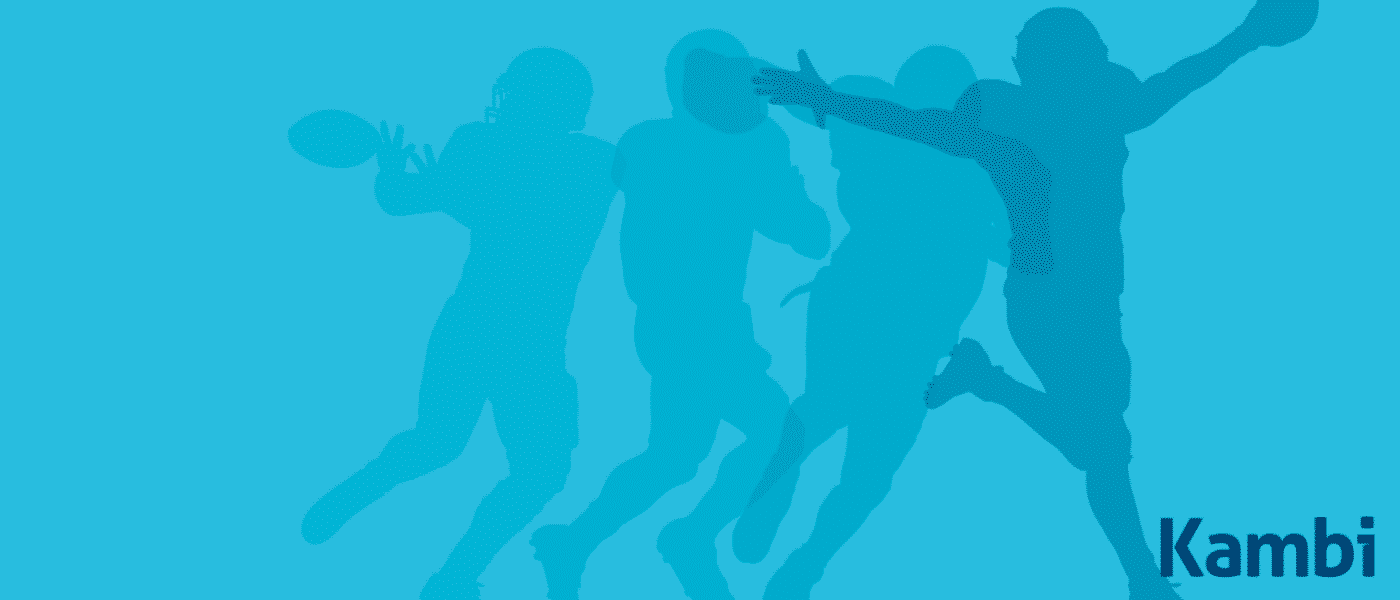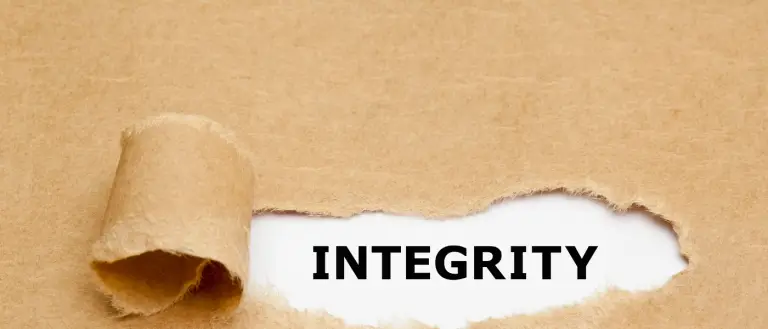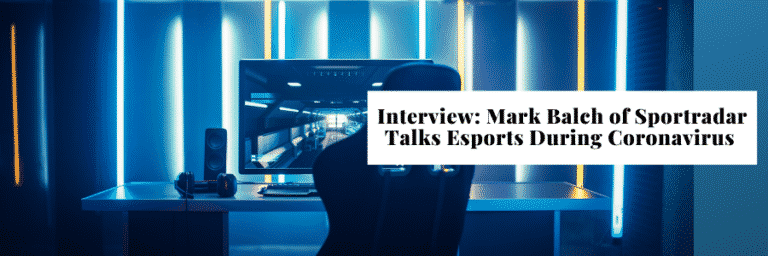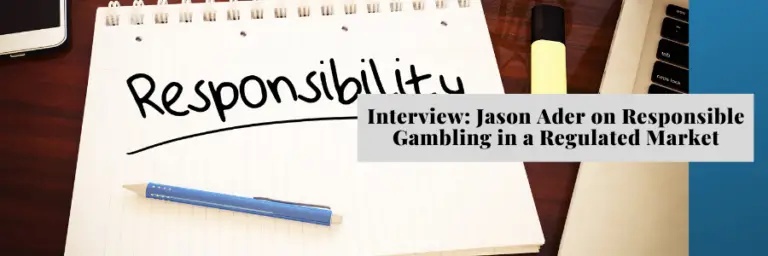Kambi CEO Discusses The US Market Before, During, And After COVID-19

A lot has happened since the Supreme Court of the United States repealed the Professional and Amateur Sports Protection Act (PASPA) on May 14, 2018.
The ruling ushered in the era of legal sports betting in the US, and it’s hard to believe that happened less than two years. From legalization to a global pandemic, it’s been a long strange trip.
To try to make sense of it all, Betting USA spoke with Kambi CEO Kristian Nylen to get his perspective on the legal US sports betting market. The interview covers a lot of ground, from the inroads sports betting has made in the US, to the subsequent derailment of those efforts due to the novel Coronavirus, to how the sports betting industry can adapt to a post-Coronavirus world.
The Ongoing Threat of COVID-19
Betting USA: COVID-19 has stopped US sports betting momentum in its tracks. Short of it magically disappearing, I suspect we’ll be dealing with the fallout of COVID-19 for years to come. That could be future lockdowns, social-distancing policies at retail sportsbooks, or a changed sports experience, such as fanless games. How is Kambi preparing to adapt to these possibilities?
Kristian Nylen: These are unprecedented times, and this pandemic is having a wide-reaching impact on all areas of society and changing the manner in which people go about their daily lives.
There are certainly more significant areas to address than how sports betting will recover, but from a Kambi perspective, the past few months have taught us a great deal.
The four main US sports cannot be matched in terms of overall interest, but we have seen big increases in engagement in other sports like table tennis, MMA, and soccer. One of the advantages of being a global sports betting provider is that we have always had a strong offering of events from all over the globe. So recent events have resulted in a ramping up of our existing capabilities, rather than being caught out.
From an operator perspective, casinos are starting to open up, and of course, social distancing measures are particularly important. The long queues we saw at sportsbooks are only going to get longer, which will make the situation more difficult to handle. However, we think our Bring Your Own Device (BYOD) technology can be of significant help here. Enabling players to view lines and construct their bets anywhere before placing them at the casino’s sportsbook counter or kiosk, the functionality significantly shortens queues and reduces contact with surfaces, while protecting betting volumes.
In terms of fanless games, there will always be fans who want to watch their team with others and where you have some atmosphere – I think we’ll see an even greater appetite to watch sports in environments such as brick and mortar sportsbooks. With social distancing measures required, this places even greater significance on technology, such as our BYOD, to enable people to get their bets down quickly and safely.
There isn’t any evidence as yet that fanless games impact betting, so we don’t currently view that as an issue. Indeed, we don’t believe there is likely to be a major long-term impact on how sporting events are conducted, with society re-opening relatively quickly.
Will the Shutdowns Accelerate Legalization Efforts?
Betting USA: The pandemic has also served as something of a wakeup call for legislators in the US to embrace online gambling options. Do you expect a push in upcoming legislative sessions to include online options or expand beyond retail betting in states that already passed sports betting laws?
Kristian Nylen: While we’ve discussed measures that can facilitate social distancing in casinos, such as Kambi’s BYOD technology. It’s true that the safest measure states can take is allowing people to bet from the comfort and safety of their own homes.
While we hope it won’t be the case, there is the possibility that there could be a second and third wave of Covid-19, which may once again lead to casino closures. It’s becoming more apparent that a number of owners of land-based casinos previously cool on the prospect are softening their stance towards online betting as on-premise revenue streams become slightly more unpredictable.
I think some states previously resistant to online regulation are starting to see the benefits of online in this context, in addition to all the benefits that existed before and continue to exist, such as responsible gambling measures and sporting integrity.
It’s also true that the Covid-19 pandemic is leading states to seek greater tax revenue, which the expansion of regulated online sports betting can play a role in. We’ve already seen Michigan look to expedite its online regulation, and I wouldn’t be surprised to see others follow suit.
New Products for a New Reality
Betting USA: The pandemic may also serve as a warning to regulators who’ve limited product offerings to sports, and in many instances, only the major sports leagues. Could betting on esports, events (award shows, weather, or politics), and lower-tier sports have helped mitigate the loss of revenue during the COVID shutdowns? And should regulators consider a less stringent approval policy?
Kristian Nylen: This is something for each state to decide, and we understand that they must have confidence in the integrity of each event before they allow it.
Kambi is the only sports betting supplier that’s a member of the International Betting Integrity Association, and we make use of official data wherever we can. Combined with our very strong ties with sports governing bodies and associations, we provide regulators the confidence they need to enable our partners to offer a wider range of sports and events.
Although this naturally does not make up for the current loss of US sports, it certainly enables operators to keep bettors engaged, which will be immensely important when more traditionally popular sports make their return. Those suppliers and operators which simply downed tools during this time will find it challenging to reactivate players when leagues such as the NHL and NBA hopefully return in the weeks ahead.
Esports and politics are a separate question. From a global perspective, we see a good appetite for both, but in the US, esports is limited while politics remains off the menu altogether. That said, I don’t think we should look at traditional esports or politics to be a like-for-like replacement for sports as they generally attract a different type of bettor. For example, we have found that sports bettors are more likely to bet on esoccer than on the traditional form of esports like Counterstrike and Dota 2.
Lessons Learned in the US
Betting USA: Moving on from COVID, we’re two years into the post-PASPA US sports betting era. What has Kambi learned about the US Sports bettor during that time?
Kristian Nylen: I’d say it’s been more a case of underlining what we had thought previously than us learning anything new or being surprised by anything. Average stakes are higher than in the UK, for example, while we anticipated the huge popularity of parlays. The NFL is, of course, the most popular league to bet on, while in-play engagement is growing at a solid rate with all of our partners.
If I were to pick an area that exceeded our projections, I would look to the number of people we see coming through our kiosks. Pre-lockdown, approximately 80% of all on-property bets were placed at a kiosk, which in turn reduces the queues for the teller. Our partners have sought to make room for further kiosks in order to meet demand, underlining their importance and popularity. Along with our Bring Your Own Device technology, they have revolutionized the on-property experience.
As I’ve mentioned, the speed at which in-game betting is growing has been impressive. We knew it would grow and will eventually comprise the majority of turnover, but the rate at which this is happening is worth highlighting.
US Bettors Focused on a Small Number of Sports… For Now
Betting USA: Along the same lines, is there anything that stands out about US sports betting markets?
Kristian Nylen: In the US, the bulk of handle is focused on the three or four main sports, whereas it’s a little more spread out elsewhere.
That being said, perhaps the main thing that stands out is how quickly the regulated US market is beginning to resemble the more mature European market in terms of betting activity. Since launching, we have rapidly witnessed significant increases in the use of cross-sport parlays, cash-out, in-game betting, and the range of sports being wagered on, including growth across the likes of MMA and table tennis.
For all the differences people like to think there are between Europe and the US, there are many similarities.
The Keys to a Successful Partnership
Betting USA: With legalization occurring on a state-by-state basis, market access is a critical component to success in the US. Kambi has partnerships with both commercial and tribal operators in the US. Can you talk about the critical elements of successful partnerships and why you think Kambi stands out?
Kristian Nylen: There are a number of factors at play in building successful partnerships, but trust is definitely one which stands out. We have a great track record of successful delivery, which no other supplier can match, taking the first bets in a number of states. Kambi most recently processed the first legal online wager in Illinois with Rush Street Interactive.
We don’t operate in black markets, nor do we operate a B2C brand – our resources are 100% dedicated to sports betting and being the best at what we do, which is being the industry’s premium, trusted sportsbook partner.
Empowerment is also central to the success of our partnerships. We provide an unmatched sportsbook core and network, while at the same time giving operators all the levers they need to differentiate. Alongside a powerful suite of open APIs to enable them to build a unique front-end, these include price differentiation, a sophisticated bonusing toolbox, bespoke risk management, and an open platform to integrate digital enhancements such as streaming.







